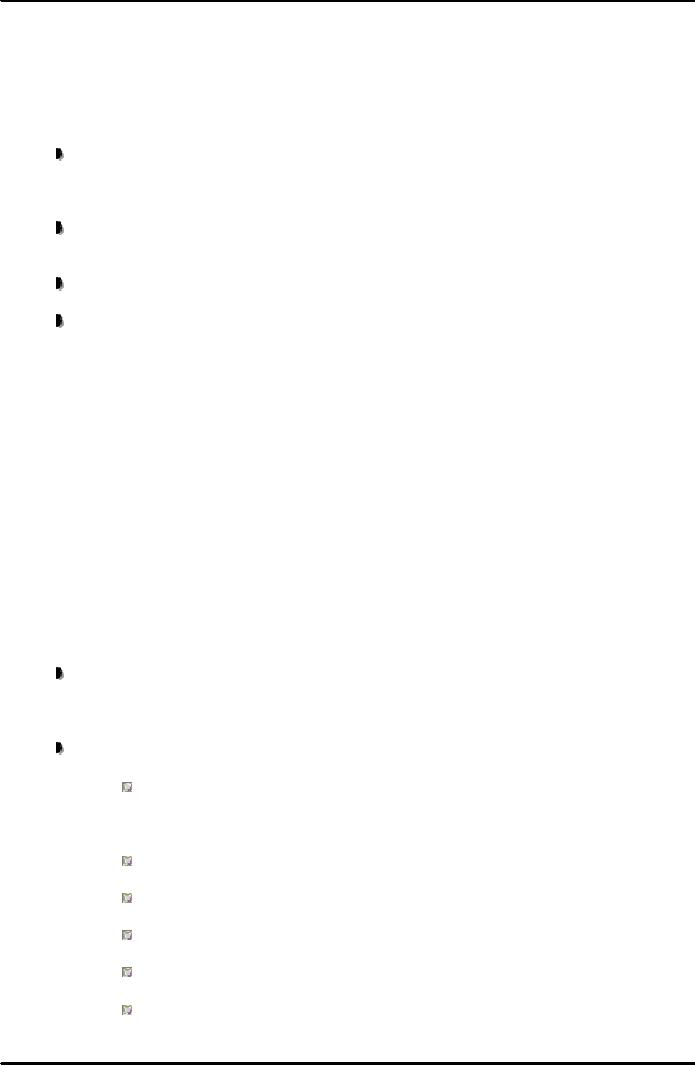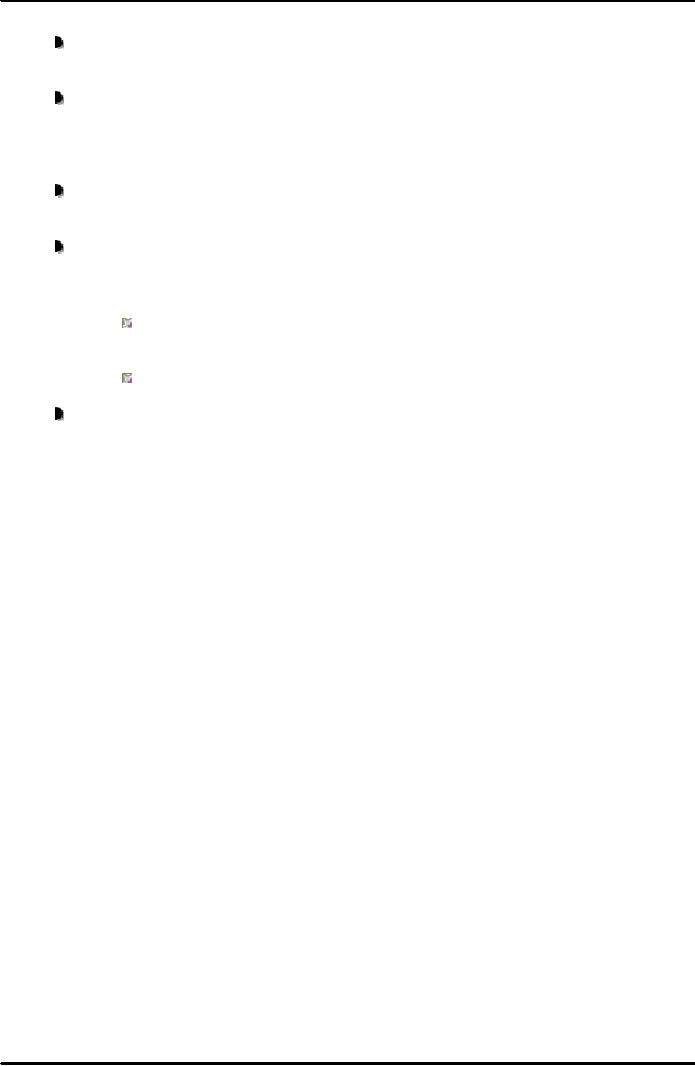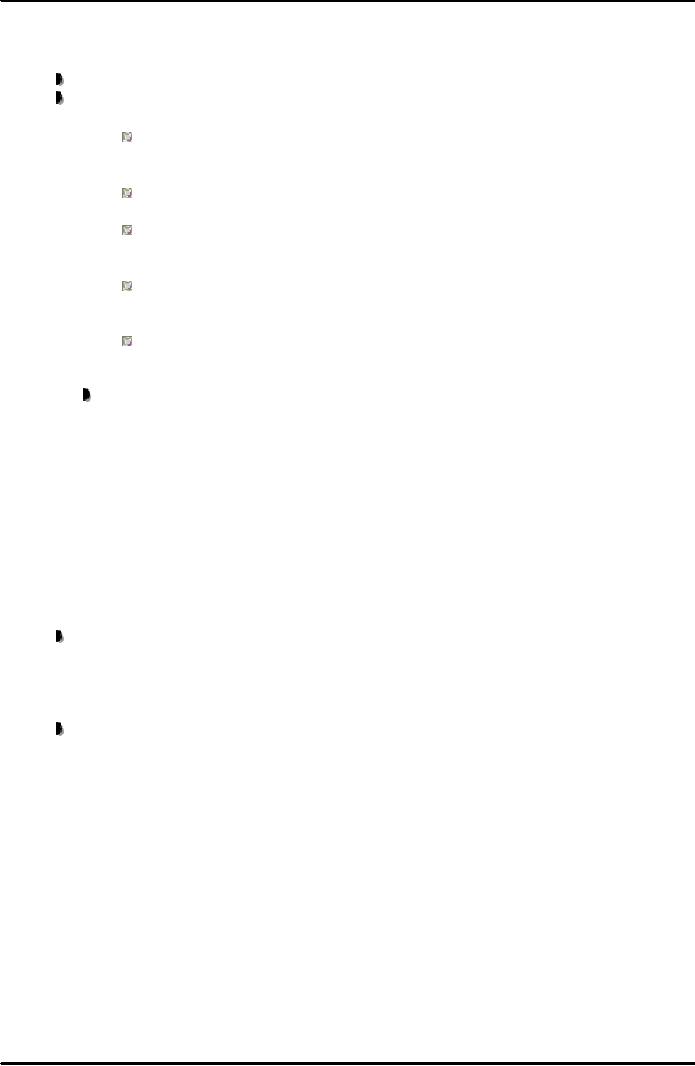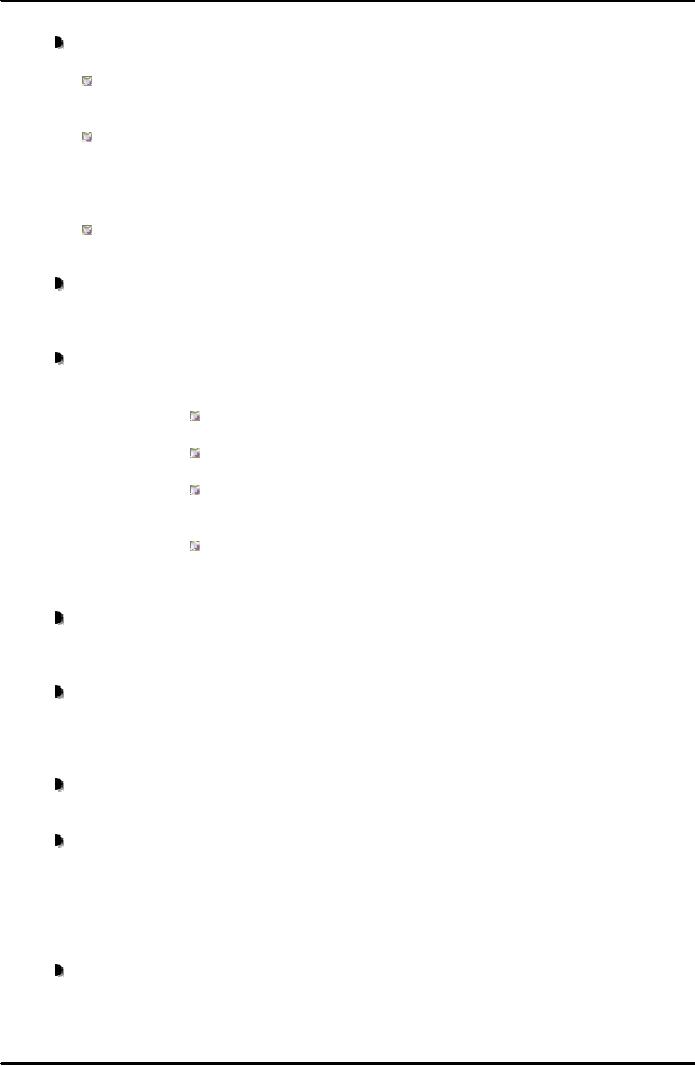 |
ELECTRONIC TRANSACTIONS ORDINANCE, 2002 - 3 |
| << ELECTRONIC TRANSACTIONS ORDINANCE, 2002 - 2 |
| GLOBAL LEGAL ISSUES OF E-COMMERCE - 1 >> |

E-COMMERCE
IT430
VU
Lesson
43
ELECTRONIC
TRANSACTIONS ORDINANCE, 2002
(ETO) (CONTINUED....)
Section
24 of the ETO provides
that Certification Council
shall make regulations
specifying the
criteria/procedure
for the grant of accreditation
certificates to the certification service
providers. The
provision
is reproduced as follows:
"24.
The Certification Council
may grant accreditation to certification
service provider, its
cryptography
services, electronic signature or
advanced electronic signature and
security
procedures
who comply with the criteria for
accreditation specified in the
regulations.
The
terms and conditions of the
accreditation, including those relating
to duration of the
accreditation,
renewal, suspension or revocation, shall
be specified in regulations.
The
fee for grant and renewal of
the accreditation shall be as
prescribed.
The
form and manner of
proceedings for the consideration of
application for grant,
renewal,
suspension
or revocation of accreditation shall be
specified in the regulations provided
that, the
regulations
shall provide for a
transparent procedure with
due regard to the right of
hearing."
Note
that a certification service
provider shall have proper
right of hearing before a decision on
its
application
for the grant of accreditation certificate is
made. This is based on the fundamental
principle of
law
that no body should be condemned
unheard (also called the
principle of natural justice).
Under
Section 25, each
certification service provider
shall prepare a Certification
Practice Statement
(CPS)
as
prescribed by the regulations of the
Certification Council. CPS would be a
policy document of the
certification
service provider, which
would be filed along with the
application for grant of
accreditation
certificate.
A copy
of the certification practice statement
shall be maintained at the office of the
Certification Council
and
shall be open to public inspection.
Subject to any regulations
made by the Council, a CPS
would
normally
include information for persons
adversely affected by a wrong/false
certificate, the extent of
liability,
policy about suspension or revocation of
certificates etc.
For details you can
see section 25
below
(no
need to memorize any such
section, just try to build a
general sense):
"25.
Each certification service
provider, desirous of being accredited,
shall prepare and have
at
all
times accessible a certification
practice statement in such
form and with such
details,
particulars
and contents as may be
specified in regulations made by the
Certification Council.
Without
prejudice to the generality of the foregoing, the
regulations may provide
for:
Prompt
information to persons likely to be
adversely affected by any event
relating
to the
information system of the certification
service provider or
inaccuracy,
invalidity
or misrepresentation contained in a
certificate;
Identification
of subscribers;
Suspension
or revocation of certificates;
Accuracy
of information contained in a valid
accreditation certificate;
Foresee
ability of reliance on valid
accreditation certificates;
and
Deposit
of certificates or notification of any
suspension or revocation of any
accreditation
certificate or any other fact or
circumstance affecting the certificate,
in
the
repository.
171

E-COMMERCE
IT430
VU
The
certificate practice statement shall be
submitted to Certification Council for
approval along
with
the application for
accreditation.
Any
subsequent change in the approved
certification practice statement
shall be initiated
and
processed
in such manner as may be
specified in regulations made by the
Certification Council,
and
upon approval by the Certification Council,
shall be
incorporated in the
certification
practice
statement.
A copy
of the certification practice statement
shall be maintained at the office of
the
Certification
Council and shall be open to
public inspection.
Subject
to such limitations as may be
specified in the regulations made under
sub-section (1), a
certification
service provider shall,
during the period of validity of an
accreditation certificate
published
for reliance by any person,
be deemed to warranting to such person
that:
the
certification service provider
has complied with the requirements of
this
Ordinance,
rules and regulations made
under this ordinance ; and
the
information contained in the certificate is
accurate.
The
Certification Council may
suspend or revoke the accreditation of a
certification service
provider
for failure to comply with the provisions
of this section:
Provided
that, an order for suspension or
revocation of accreditation shall be made
in the manner specified
in
regulations made under sub-section
(1) after providing reasonable
right of hearing."
All
applications and matters before the
Certification Council should be decided
as quickly as possible
through
a speaking order (order containing
reasons). The Council may
appoint such officers, employees
and
advisers
as it considers necessary, and
can also establish regional or
local offices for due
performance of its
functions.
Section
31 of the ETO specifies
that it does not apply to
five different types of
documents, namely, a
negotiable
instrument, a power of attorney, a trust, a will, a contract of
sale or conveyance of immoveable
property.
Accordingly, such documents
are still required to be in paper
form.
A negotiable
instrument includes a promissory note, a
bill of exchange and a
check. A promissory note
is
an
unconditional promise or undertaking to
pay a specified amount to a specified
person. A bill of
exchange
is an
order by a person (person
`A') to another person (person
`B') to make certain payment
to a third
person
(person `C') on behalf of
`A'. A check is a type of bill of
exchange where the bank is asked by
a
person
(drawer of the check) to make
specific payment to the person in
whose favor the check is
written. A
power of attorney
is the document through which some
authority is given by a person to another to
do
certain
acts or things on behalf of the person
who executes the power of attorney. A document of
trust or
trust
deed is prepared to create a trust. A
trust can own property in
its name.
The
property of the trust is used for the
benefit of specified persons
named in the trust deed
called
beneficiaries
of the trust. The person who
establishes the trust is called author of
the trust. The persons
who
mange the affairs of the trust are
called trustees. A will is a document
through which someone
can
name
the person(s) who would be
entitled to own his property
after his death. A document through
which
the ownership in a
property is legally transferred to
someone is called a conveyance
deed (such as a sale
deed).
A contract of
sale of immoveable property (land
etc.) and/or a conveyance
deed in this behalf are
still
required to be in
paper form. Note that the
Federal Government, however, has
been given the power to
make
whole or any part of the ETO
applicable to all or any of the above
documents through a
notification
in the
official gazette.
172

E-COMMERCE
IT430
VU
For
reference, section 31 is given as
under:
"31.
Subject to sub-section
Nothing
in this Ordinance shall apply to:
a negotiable
instrument as defined in section 13 of the
Negotiable Instruments Act,
1881
(XXVI of 1881);
a
power-of-attorney under the Powers of
Attorney Act, 1881 (VII of
1882);
a trust as
defined in the Trust Act
1882 (II of 1882), but excluding
constructive,
implied
and resulting trusts;
a will
or any form of testamentary
disposition under any law
for the time being in
force;
and
a contract
for sale or conveyance of immovable
property or any interest in
such
property.
The
Federal Government after consultation
with the provinces may,
by
notification
in
the
official Gazette and subject
to such conditions and
limitations as may be
specified
therein,
declare that the whole or
part of this Ordinance shall apply to the
whole or part of
one or
more instruments specified in
clauses (a) to (e) of
sub-Section (1)."
Section
32 of the ETO says
that courts in Pakistan
shall have jurisdiction or
authority to decide any
matter
that
relates to persons or information
systems or events in Pakistan
and covered by the terms of
the
Ordinance.
Assume that someone from
England accesses an information
system in Pakistan and
deletes or
modifies the
data of a person contained therein
without any authority, then
this act may be treated as
an
offence under the
ETO and Pakistani courts
would have jurisdiction to
try such a matter. Note
that ETO
would
have an overriding or dominating effect
as opposed to a law which is
inconsistent with its
terms.
Sections
32 and 33 are reproduced as under in this
behalf:
"32.
The provisions of this Ordinance shall apply
notwithstanding the matters being
the
subject
hereof occurring outside Pakistan, in so
far as they are directly or
indirectly connected
to, or
have an effect on or bearing in relation
to persons, information systems or
events within
the
territorial jurisdiction of
Pakistan."
"33.
The provisions of this Ordinance shall apply
notwithstanding anything to the
contrary
contained in
any other law for the time
being in force."
Sections
34 to 37 of the ETO deal
with offences. Four
different types of offences
are mentioned in ETO.
Where
a subscriber obtains a certificate from
the certification service provider
providing false
information,
deliberately, he is
guilty of an offence. Any directors or
other officers of a certification service
provider
commit an offence
in case they issue a certificate knowing
that it is false or they do not
cancel a certificate
after they
have come to know that the
information it contains is
wrong/false.
A
person who accesses or
attempts to access an information
system with or without the
intention to acquire
information
contained therein is also guilty of an
offence under the ETO in case he does so
without any
authority.
A
person would also be said to
have committed an offence where he,
without any authority,
deletes,
removes,
or alters any information contained in
any information system, or he
hinders or attempts to
hinder
access
to an information system without
any authority to do so. Note
that each of the above
offences
prescribes
imprisonment or fine or both. The
aforesaid provisions are reproduced
below in case you
want
to
look into details: (for
exam you are not
supposed to memorize these
sections)
173

E-COMMERCE
IT430
VU
"34.
any subscriber who:
Provides
information to a certification service
provider knowing such
information to be
false
or not believing it to be correct to the
best of his knowledge and
belief;
Fails
to bring promptly to the knowledge of the
certification service provider
any change in
circumstances
as a consequence whereof any information
contained in a certificate
accepted
by the subscriber or authorized by him
for publication or reliance by
any person,
ceases
to be accurate or becomes misleading,
or
Knowingly
causes or allows a certificate or his
electronic signatures to be used in
any
fraudulent
or unlawful manner, shall be
guilty of an offence under this Ordinance.
The
offence under sub-section (1) shall be
punishable with imprisonment either description
of
a term
not exceeding seven years,
or with fine which may
extend to ten million rupees, or
with
both."
"35.
Every
director, secretary and other
responsible officer, by whatever
designation called,
connected
with the management of the affairs of a
certification service provider,
which:
Issues,
publishes or acknowledges a certificate
containing false or
misleading
information;
Fails
to revoke or suspend a certificate after acquiring knowledge
that any
information
contained therein has become
false or misleading;
Fails
to revoke or suspend a certificate in circumstances
where it ought
reasonably
to have been known that
any information contained in the
certificate is
false or misleading;
Issues
a certificate as accredited certification
service provider while
its
accreditation
is suspended or revoked; shall be guilty
of any offence under
this
Ordinance.
The
offence under sub-section (l) shall be
punishable with imprisonment either description of
a
term
not exceeding seven years,
or with fine which may
extend to ten million rupees, or
with
both.
The
certification service provider or
its employees specified in
sub-section (1) shall also
be
liable,
upon conviction, to pay
compensation for any
foreseeable damage suffered by
any
person
or subscriber as a direct consequence of
any of the events specified in
clauses (a) to (d)
of
sub-section (1).
The
compensation mentioned in sub-section (3)
shall be recoverable as arrears of
land
revenue."
"36.
Any
person who gains or attempts
to gain access to any
information system with
or
without
intent to acquire the information
contained therein or to gain knowledge of
such
information,
whether or not he is aware of the nature
or contents of such information,
when
he is
not authorized to gain access, as
aforesaid, shall be guilty of an offence
under this
Ordinance
punishable with either description of a term
not exceeding seven years,
or fine
which
may extend to one million
rupees, or with
both."
"37. Any
person who does or attempts
to do any act with intent to
alter, modify,
delete,
remove,
generate, transmit or store any
information through or in any
information system
knowingly
that he is not authorized to do any of
the foregoing, shall be guilty of an
offence
under this
Ordinance.
174

E-COMMERCE
IT430
VU
Any
person who does or attempts
to do any act with intent to
impair the operation of,
or
prevent or
hinder access to, any
information contained in any information
system, knowingly
that
he is not authorized to do any of the
foregoing, shall be guilty of an offence
under this
Ordinance.
The
offences under sub-section (1)
and (2) of this section will
be punishable with either
description of a
term not exceeding seven
years or fine which may
extend to one million
rupees,
or with both."
175
Table of Contents:
- E-COMMERCE
- WHAT IS A NETWORK
- HOW MANY CLASS A, B, C NETWORKS AND HOSTS ARE POSSIBLE
- NETWORKING DEVICES
- BASICS OF HTML 1
- BASICS OF HTML 2
- TEXT BOXES, CHECK BOXES, RADIO BUTTONS
- FRAMES AND IMAGES IN HTML
- TAG ATTRIBUTES, SOUNDS FILES, ANIMATIONS
- STYLE SHEETS 1
- STYLE SHEETS 2
- SOME USEFUL STYLE SHEETS PROPERTIES
- JAVA SCRIPTING 1
- JAVA SCRIPTING 2
- JAVA SCRIPTING 3
- JAVA SCRIPTING AND XML
- CLIENT AND SERVER SIDE PROCESSING OF DATA
- APPLETS, CGI SCRIPTS
- MAINTAINING STATE IN A STATELESS SYSTEM
- INTEGRATION WITH ERP SYSTEMS
- FIREWALLS
- CRYPTOGRAPHY
- HASH FUNCTION AND MESSAGE DIGEST
- SYMMETRIC KEY ALGORITHMS
- VIRTUAL PIN PAYMENT SYSTEM
- E-CASH PAYMENT SYSTEM 1
- E-CASH PAYMENT SYSTEM 2
- SECURE SOCKET LAYER (SSL)
- E-BUSINESS: DISADVANTAGES OF E-BUSINESS
- E-BUSINESS REVENUE MODELS
- E-MAIL MARKETING
- CUSTOMER RELATIONSHIP MANAGEMENT (CRM)
- META INFORMATION
- DATA MINING
- CONFIDENCE AND SUPPORT
- ELECTRONIC DATA INTERCHANGE (EDI)
- PERSONAL FINANCE ONLINE
- SUPPLY CHAIN
- PORTER’S MODEL OF COMPETITIVE RIVALRY
- BARRIERS TO INTERNATIONAL E-COMMERCE
- ELECTRONIC TRANSACTIONS ORDINANCE, 2002 - 1
- ELECTRONIC TRANSACTIONS ORDINANCE, 2002 - 2
- ELECTRONIC TRANSACTIONS ORDINANCE, 2002 - 3
- GLOBAL LEGAL ISSUES OF E-COMMERCE - 1
- GLOBAL LEGAL ISSUES OF E-COMMERCE - 2